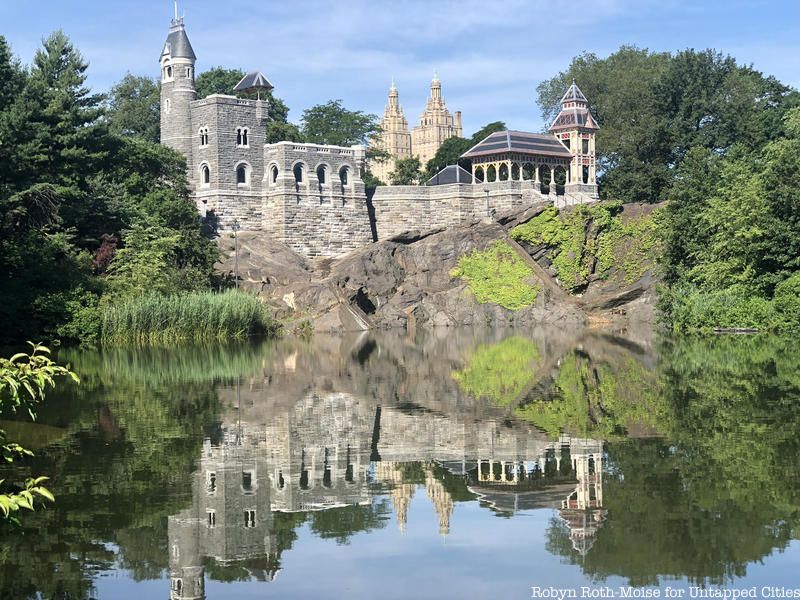

Many areas of New York City have past lives buried beneath them, and this is especially true of Central Park, where the past peeks through if you know where to look. Before the Great Lawn was an expansive grassy field with baseball diamonds, it was the site of the York Hill Reservoir. The giant rectangular structure was part of the Old Croton Aqueduct system which brought fresh water to the city from Westchester in the 1800s. The reservoir was filled in in the 1930s, but remnants of its walls can still be seen in the park today, near the Central Park NYPD station on the 86th Street transverse inside the park.
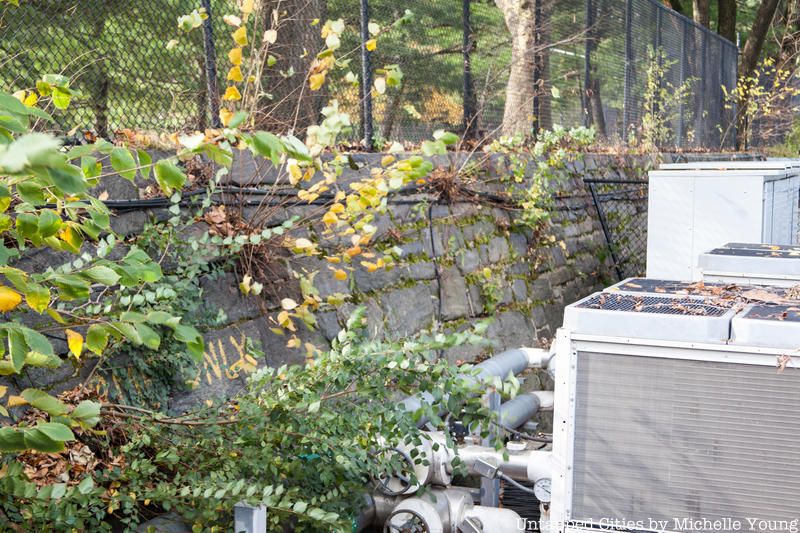
The walls of old reservoirs can be identified by their sloping nature. Part of the north wall of the reservoir is used as a retaining wall for a parking lot at the back of the station, and on the east side of the station there is a corner of the reservoir that sticks out.
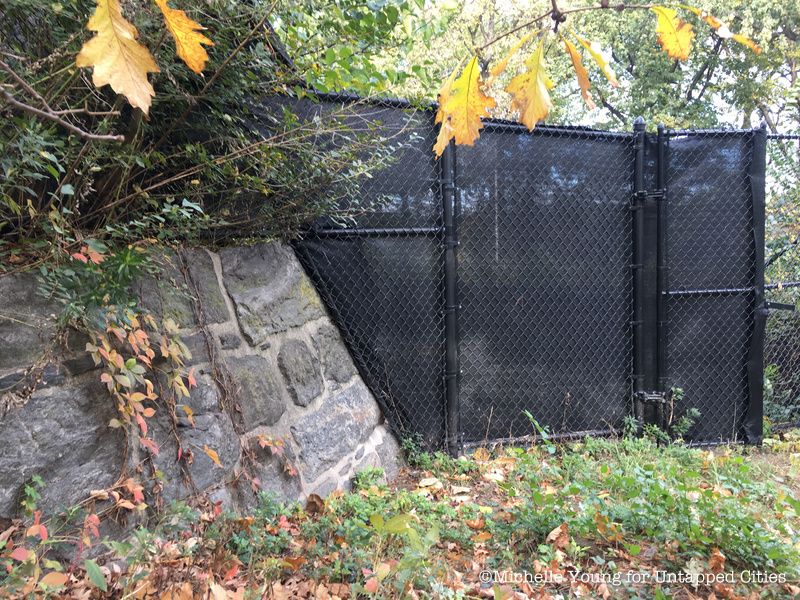
Along the east side of the Great Lawn, stones from a side wall can be seen poking out of the ground. There is even a rock wall inside the station’s conference room, part of an expansion of the police station that does a good job design-wise of blending old and new. The main entrance hall of the precinct is a glass canopy that bridges between original structures of Central Park.
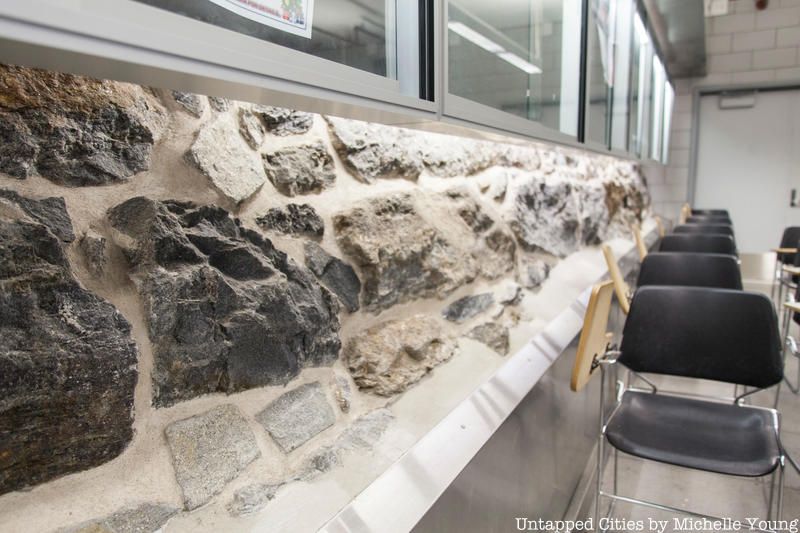
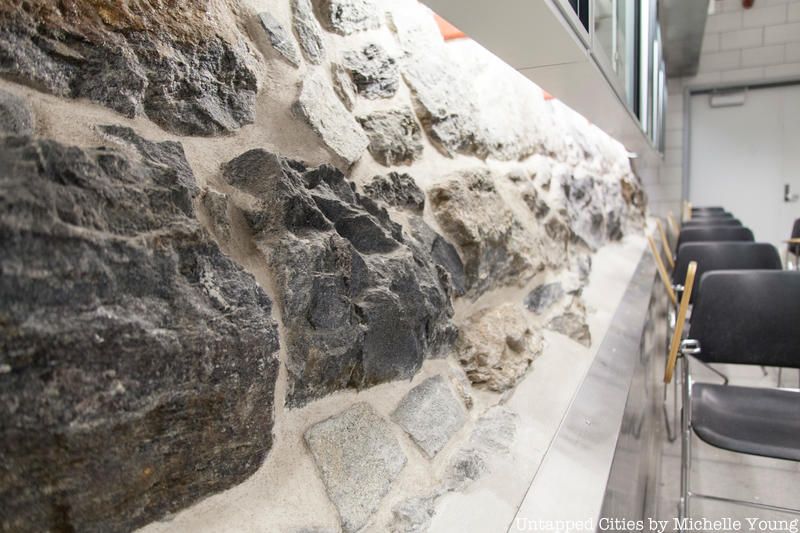
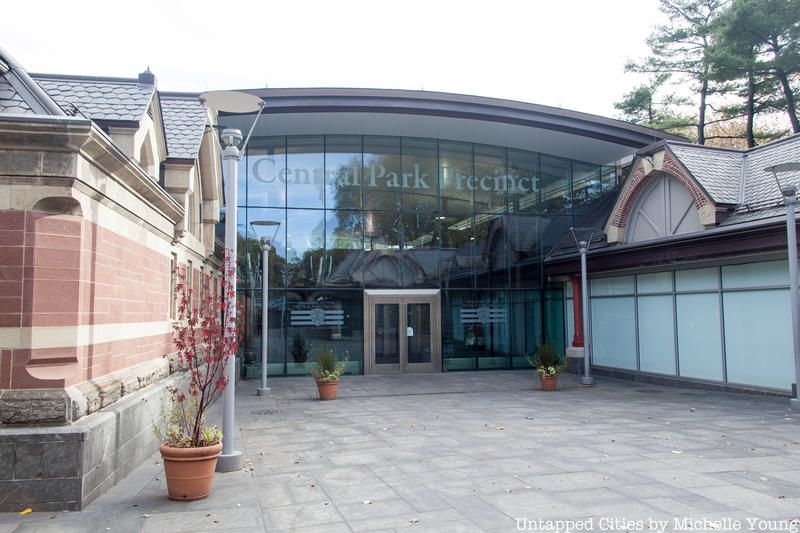
Another spot in the park where you can see the remnants of reservoir is near the Shakespeare Theater where a historic marker pays homage to the historic reservoir. There is even a plaque that explains the history of the Great Lawn near the entrance to the ladies’ room building next to the Delacorte Theater.
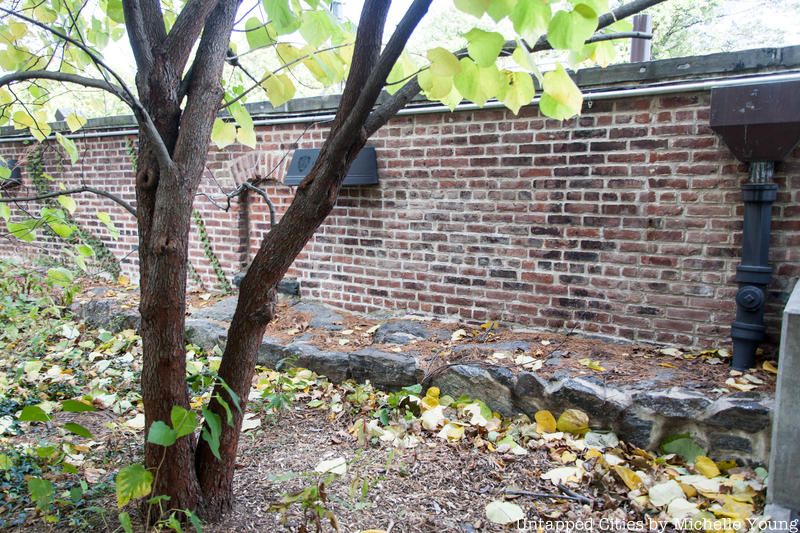
The York Hill Reservoir was a receiving reservoir which stored water that came down through the Old Croton Aqueduct which originated in upper Westchester. Before this innovative system, clean drinking water was scarce in the city and contamination was a serious concern. The water would then flow to a Distributing Reservoir on 42nd Street, where the New York Public Library now stands.
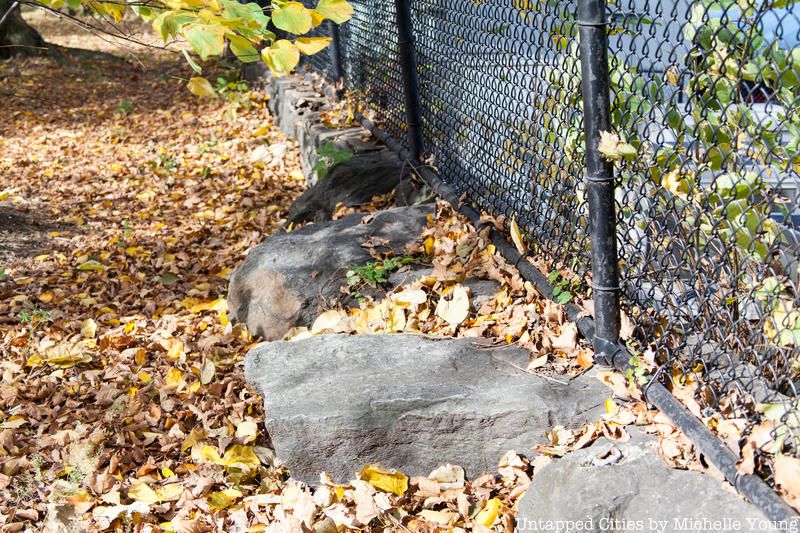
The bulky reservoir did not fit into Frederick Law Olmsted and Calvert Vaux’s vision for the park. First off, it was massive, running all the way from the 79th Street Transverse to the 86th Street Transverse Road and basically the entire width of the park. Secondly, the shape and aesthetic were all wrong. The reservoir was rectangular and the straight lines and sharp corners contrasted with the soft curves and naturalistic feel Olmsted and Vaux wanted for the park. To camouflage it, large plantings were installed along the reservoir’s tall stone walls to attempt to hide and soften it. The only way to see the reservoir was from Belvedere Castle.
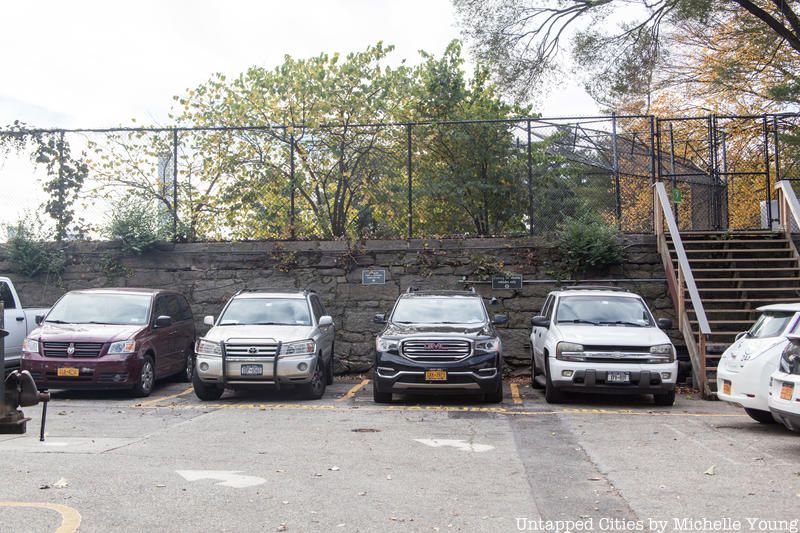
The reservoir was in use from 1842 until 1931 when it was decommissioned. It was filled in with material from Rockefeller Center and the Eighth Avenue subway. For a time, before official plans were made with what to do with the site, it became Hooverville, or shanty town where homeless and jobless victims of the Great Depression dwelled. Proposals were sent in for all kinds of uses for the space from a World War I memorial, to a sports arena, an opera house, underground parking garages, and even airport landing pads. In the end, a bare lawn was chosen as the best use of the space and it opened in 1937. The baseball diamonds would come years later in 1950s.
Learn more about the little-known histories of Central Park and its many other secrets on an upcoming walking tour!
Next, check out The Top 10 Secrets of NYC’s Central Park and 10 Fun Facts About NYC’s Central Park


